2015
America Is Holding Itself Hostage to Terrorism
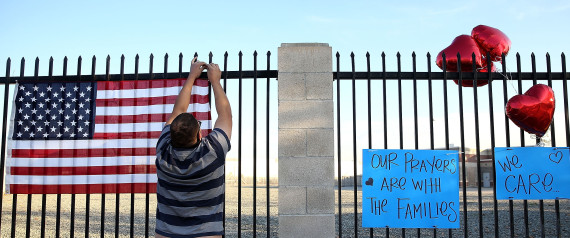 Charles Kurzman, “America Is Holding Itself Hostage to Terrorism,” The Huffington Post, December 17, 2015. “So far this year, Americans have been more likely to be killed for being Muslim — than by a Muslim. One in one million Muslim Americans died because of hatred for their faith, compared with one in 17 million other Americans who died at the hands of Muslim militants. Fortunately, both types of violence are incredibly rare. … We need to stop holding ourselves hostage to rare incidents of Islamic violence. We can only remain the land of the free if we start behaving like the home of the brave.” More…
Charles Kurzman, “America Is Holding Itself Hostage to Terrorism,” The Huffington Post, December 17, 2015. “So far this year, Americans have been more likely to be killed for being Muslim — than by a Muslim. One in one million Muslim Americans died because of hatred for their faith, compared with one in 17 million other Americans who died at the hands of Muslim militants. Fortunately, both types of violence are incredibly rare. … We need to stop holding ourselves hostage to rare incidents of Islamic violence. We can only remain the land of the free if we start behaving like the home of the brave.” More…
Ideological Violence Is Terrorism
 Charles Kurzman, “Ideological Violence Is Terrorism,” New York Times “Room for Debate” forum, December 3, 2015. “Violence like the shooting in San Bernardino, Calif., raises an existential question: What are we most afraid of? Ideological killings, which occur relatively rarely, or “ordinary” violence — including school shootings, gang murders, domestic abuse and other forms of homicide — which is much more common?” More…
Charles Kurzman, “Ideological Violence Is Terrorism,” New York Times “Room for Debate” forum, December 3, 2015. “Violence like the shooting in San Bernardino, Calif., raises an existential question: What are we most afraid of? Ideological killings, which occur relatively rarely, or “ordinary” violence — including school shootings, gang murders, domestic abuse and other forms of homicide — which is much more common?” More…
A Resolute Commitment to Coexistence — Now That Projects Strength
![]() Charles Kurzman, “A Resolute Commitment to Coexistence — Now That Projects Strength,” IslamiCommentary, November 30, 2015. “Over the past year, the Islamic State came to realize that even small-scale, low-tech attacks by Muslim extremists — a knifing in Boston, rifle shots in Chattanooga — could attract massive attention and concern. Few Muslims have taken up the call to mayhem, but a few is enough. Opportunistic politicians will do the Islamic State’s work for it, warning their constituencies that they face an existential threat from ISIS and its supporters. Claiming to project strength, these politicians stoke the sense of vulnerability that the Islamic State aims to instill.” More…
Charles Kurzman, “A Resolute Commitment to Coexistence — Now That Projects Strength,” IslamiCommentary, November 30, 2015. “Over the past year, the Islamic State came to realize that even small-scale, low-tech attacks by Muslim extremists — a knifing in Boston, rifle shots in Chattanooga — could attract massive attention and concern. Few Muslims have taken up the call to mayhem, but a few is enough. Opportunistic politicians will do the Islamic State’s work for it, warning their constituencies that they face an existential threat from ISIS and its supporters. Claiming to project strength, these politicians stoke the sense of vulnerability that the Islamic State aims to instill.” More…
After the Arab Spring: Do Muslims Vote Islamic Now?
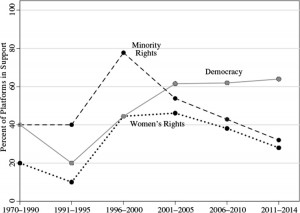 Charles Kurzman and Didem Türkoğlu, “After the Arab Spring: Do Muslims Vote Islamic Now?” Journal of Democracy, Vol. 26, No. 4, October 2015, pp. 100-109. “Do Muslims Vote Islamic?” asked an article by Charles Kurzman and Ijlal Naqvi in the April 2010 issue of the Journal of Democracy. The answer, at that time, appeared to be rarely. This essay presents updated data on Islamic political parties’ performance in parliamentary elections through the end of 2014, along with an expanded set of electoral platforms. Since 2011, the trend toward liberal themes has stalled, but Islamic parties have not fared much better in elections since the Arab Spring than before. More…
Charles Kurzman and Didem Türkoğlu, “After the Arab Spring: Do Muslims Vote Islamic Now?” Journal of Democracy, Vol. 26, No. 4, October 2015, pp. 100-109. “Do Muslims Vote Islamic?” asked an article by Charles Kurzman and Ijlal Naqvi in the April 2010 issue of the Journal of Democracy. The answer, at that time, appeared to be rarely. This essay presents updated data on Islamic political parties’ performance in parliamentary elections through the end of 2014, along with an expanded set of electoral platforms. Since 2011, the trend toward liberal themes has stalled, but Islamic parties have not fared much better in elections since the Arab Spring than before. More…
The dataset constructed for this paper is available here.
Online Catalogs and the Invisible Heritage of Arab Libraries
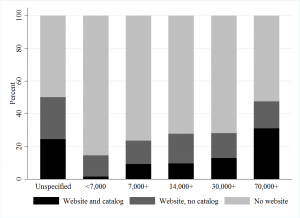
Why We Care About Some Gunmen, and Not Others
 Charles Kurzman, “Why We Care About Some Gunmen, and Not Others,” IslamiCommentary, August 31, 2015. Not every gunshot echoes alike. Some echoes fade quickly, and are only heard in a single neighborhood. Others resonate nationwide, making headlines for days or weeks, like Vester Flanagan’s murder of two television journalists near Roanoke, Virginia, last week — one of a series of shooters to gain national attention over the past year, including Mohammad Abdulazeez in Chattanooga, Tennessee; Dylann Roof in Charleston, South Carolina; and Darren Wilson in Ferguson, Missouri. These are not names that you would ordinarily see grouped together, and they do not have anything in common, except that they are American males who used lethal gunfire to address their personal sense of threat — and then became household names. Beyond the horrific nature of the crimes, what keeps these particular gunmen in the news is their adoption by political movements as symbols of a broader threat. More…
Charles Kurzman, “Why We Care About Some Gunmen, and Not Others,” IslamiCommentary, August 31, 2015. Not every gunshot echoes alike. Some echoes fade quickly, and are only heard in a single neighborhood. Others resonate nationwide, making headlines for days or weeks, like Vester Flanagan’s murder of two television journalists near Roanoke, Virginia, last week — one of a series of shooters to gain national attention over the past year, including Mohammad Abdulazeez in Chattanooga, Tennessee; Dylann Roof in Charleston, South Carolina; and Darren Wilson in Ferguson, Missouri. These are not names that you would ordinarily see grouped together, and they do not have anything in common, except that they are American males who used lethal gunfire to address their personal sense of threat — and then became household names. Beyond the horrific nature of the crimes, what keeps these particular gunmen in the news is their adoption by political movements as symbols of a broader threat. More…
Ten Unfortunate Place-Names
 Charles Kurzman, “Ten Unfortunate Place Names,” July 31, 2015, including the Hindu-Kush (Hindu-killer) mountains in Afghanistan/Pakistan; La Mort-aux-Juifs (Death to the Jews), France; and Matamoros (Moor-killer), Mexico. More…
Charles Kurzman, “Ten Unfortunate Place Names,” July 31, 2015, including the Hindu-Kush (Hindu-killer) mountains in Afghanistan/Pakistan; La Mort-aux-Juifs (Death to the Jews), France; and Matamoros (Moor-killer), Mexico. More…
The Other Terror Threat
 Charles Kurzman and David Schanzer, “The Other Terror Threat,” The New York Times, June 16, 2015. “If you keep up with the news, you know that a small but steady stream of American Muslims, radicalized by overseas extremists, are engaging in violence here in the United States. But headlines can mislead. The main terrorist threat in the United States is not from violent Muslim extremists, but from right-wing extremists. Just ask the police. In a survey we conducted with the Police Executive Research Forum last year of 382 law enforcement agencies, 74 percent reported anti-government extremism as one of the top three terrorist threats in their jurisdiction; 39 percent listed extremism connected with Al Qaeda or like-minded terrorist organizations.” More…
Charles Kurzman and David Schanzer, “The Other Terror Threat,” The New York Times, June 16, 2015. “If you keep up with the news, you know that a small but steady stream of American Muslims, radicalized by overseas extremists, are engaging in violence here in the United States. But headlines can mislead. The main terrorist threat in the United States is not from violent Muslim extremists, but from right-wing extremists. Just ask the police. In a survey we conducted with the Police Executive Research Forum last year of 382 law enforcement agencies, 74 percent reported anti-government extremism as one of the top three terrorist threats in their jurisdiction; 39 percent listed extremism connected with Al Qaeda or like-minded terrorist organizations.” More…
- A more detailed report of this article’s findings is available in Charles Kurzman and David Schanzer, “Law Enforcement Assessment of the Violent Extremism Threat,” Triangle Center on Terrorism and Homeland Security, June 25, 2015. Survey data available at ICPSR.
The PATRIOT Act Can’t Keep America Safe from Right-Wing Violence
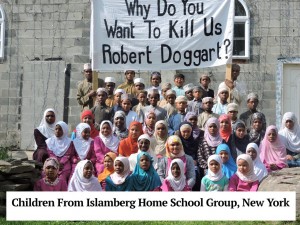 Charles Kurzman, “The PATRIOT Act Can’t Keep America Safe from Right-Wing Violence,” IslamiCommentary, May 27, 2015. With the “USA PATRIOT Act” set to expire at the end of the month, you might expect supporters of domestic surveillance to tout the take-down of the biggest plot of violent extremism America has experienced so far this year: an attempt to destroy an entire American community. But the plot was disrupted using standard investigative tools, not PATRIOT Act surveillance. That’s because the most powerful portion of the PATRIOT Act, Section 215, is limited to investigations of “international terrorism,” while this plot was a case of domestic terrorism. More…
Charles Kurzman, “The PATRIOT Act Can’t Keep America Safe from Right-Wing Violence,” IslamiCommentary, May 27, 2015. With the “USA PATRIOT Act” set to expire at the end of the month, you might expect supporters of domestic surveillance to tout the take-down of the biggest plot of violent extremism America has experienced so far this year: an attempt to destroy an entire American community. But the plot was disrupted using standard investigative tools, not PATRIOT Act surveillance. That’s because the most powerful portion of the PATRIOT Act, Section 215, is limited to investigations of “international terrorism,” while this plot was a case of domestic terrorism. More…
How Global Is K-12 Education in America?
| International Content in K-12 Standards |
||
|---|---|---|
| Rank | State | Percent of Standards |
| 1 | Louisiana | 100 |
| 2 | New Hampshire | 100 |
| 3 | Kansas | 87.1 |
Charles Kurzman, “How Global Is K-12 Education in America?” April 30, 2015. Ready or not, our children will be launched into a big wide world of global interconnectedness. How well are their schools preparing them for this transnational era? One measure can be found in state standards for history and social studies, which have been conveniently collected on the website TeachingHistory.org. It turns out that some states pay far more attention to global education than others. Leading the way are Louisiana and New Hampshire, which include a global element in all of their history and social studies standards. Rather than draw students’ attention to multiple scales, from local to global, too many states set standards that focus only on one scale at a time, segregating the United States from the rest of the world. More…
Syria’s Human Development Crisis
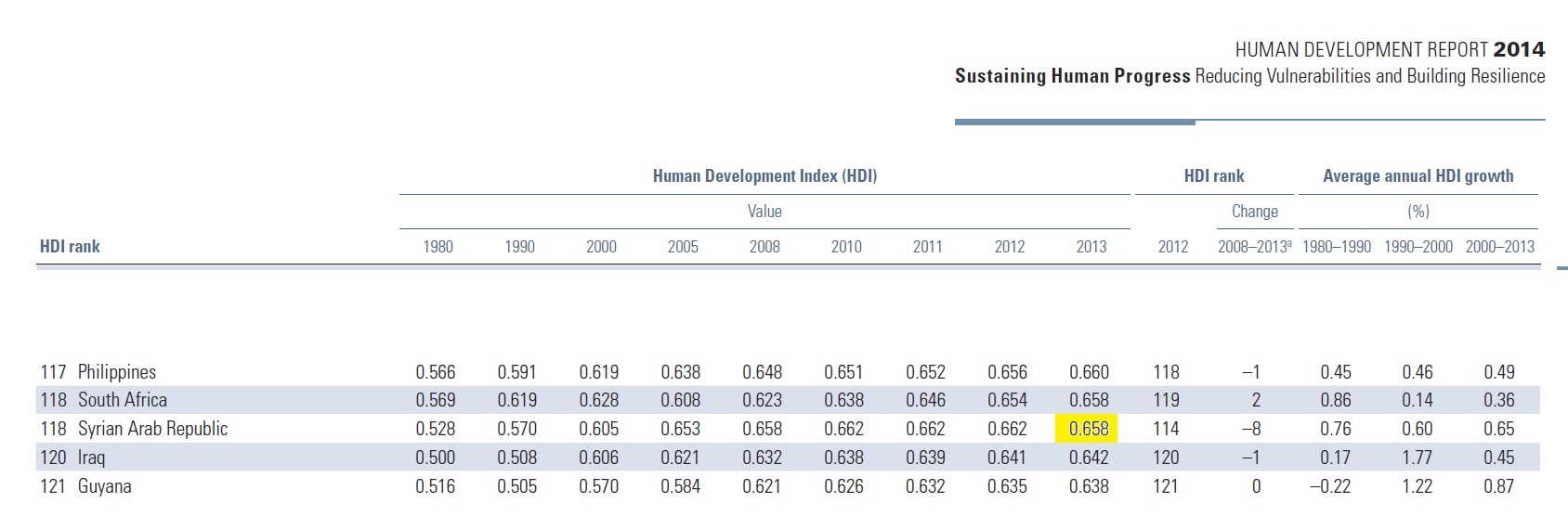
The Chapel Hill Shootings & the Troubling Growth of Anti-Muslim Intolerance
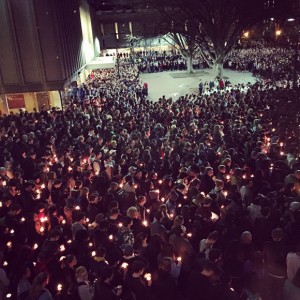 Charles Kurzman, “The Chapel Hill Shootings & the Troubling Growth of Anti-Muslim Intolerance,” IslamiCommentary, February 12, 2015. “A chill came over Chapel Hill Tuesday night. In the hours after three young people were gunned down on a quiet cul-de-sac, temperatures dropped below freezing and neighbors wondered whether this liberal college town had become the latest symbol of a troubling growth of anti-Muslim intolerance in America. … If this turns out to be a hate crime, it would mark an ugly turn in the rise of intolerance toward Muslim-Americans. While the actions of a single individual doesn’t constitute a trend, surveys have found that Americans’ attitudes toward Muslims have grown increasingly negative in recent years.” More…
Charles Kurzman, “The Chapel Hill Shootings & the Troubling Growth of Anti-Muslim Intolerance,” IslamiCommentary, February 12, 2015. “A chill came over Chapel Hill Tuesday night. In the hours after three young people were gunned down on a quiet cul-de-sac, temperatures dropped below freezing and neighbors wondered whether this liberal college town had become the latest symbol of a troubling growth of anti-Muslim intolerance in America. … If this turns out to be a hate crime, it would mark an ugly turn in the rise of intolerance toward Muslim-Americans. While the actions of a single individual doesn’t constitute a trend, surveys have found that Americans’ attitudes toward Muslims have grown increasingly negative in recent years.” More…
Terrorism Cases Involving Muslim-Americans in 2014
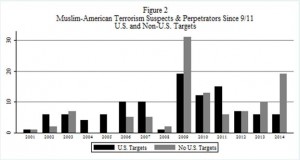 Charles Kurzman, “Terrorism Cases Involving Muslim-Americans in 2014,” February 9, 2015. “Twenty-five Muslim-Americans were associated with violent terrorism in 2014, bringing the total since 9/11 to 250, or less than 20 per year. A large majority of the cases involved travel (5 individuals) or attempted travel (14 individuals) to join designated terrorist organizations in Syria or (in one case) Yemen. Only six of the 25 individuals plotted or engaged in violence in the United States in 2014 (Figure 2), matching the lowest total since 2008. (Three of these individuals are included provisionally, as the evidence is unclear at present whether their plots ought to be characterized as terrorism.) … In 2014, four terrorism-related incidents involving Muslim-Americans – two using firearms, one a knife, and one a hatchet — killed seven people in 2014, bringing the total number of fatalities in the United States from terrorism by Muslim-Americans since 9/11 to 50. Meanwhile, the United States suffered approximately 14,000 murders in 2014 and more than 200,000 murders since 9/11.” More, including data.
Charles Kurzman, “Terrorism Cases Involving Muslim-Americans in 2014,” February 9, 2015. “Twenty-five Muslim-Americans were associated with violent terrorism in 2014, bringing the total since 9/11 to 250, or less than 20 per year. A large majority of the cases involved travel (5 individuals) or attempted travel (14 individuals) to join designated terrorist organizations in Syria or (in one case) Yemen. Only six of the 25 individuals plotted or engaged in violence in the United States in 2014 (Figure 2), matching the lowest total since 2008. (Three of these individuals are included provisionally, as the evidence is unclear at present whether their plots ought to be characterized as terrorism.) … In 2014, four terrorism-related incidents involving Muslim-Americans – two using firearms, one a knife, and one a hatchet — killed seven people in 2014, bringing the total number of fatalities in the United States from terrorism by Muslim-Americans since 9/11 to 50. Meanwhile, the United States suffered approximately 14,000 murders in 2014 and more than 200,000 murders since 9/11.” More, including data.
The Stubborn Parochialism of American Social Science
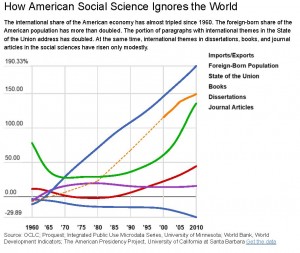
ISIS’s Unpredictable Revolution
 Charles Kurzman, “ISIS’s Unpredictable Revolution,” Oxford Islamic Studies Online, January 18, 2015. Revolutions have been surprising experts for generations. After a revolution, though, it is common to demand explanations that make the unexpected seem inevitable. Many experts are happy to satisfy our desire for a causal narrative, selecting evidence from the run-up to revolution that might serve as a sort of retroactive prediction. So why did a revolutionary group calling itself al-Daula al-Islamiyya fi’l-‘Iraq wa’l-Sham (the Islamic State in Iraq and Syria) manage to occupy territory in Syria and Iraq in 2013 and 2014? … The real story of the revolution is that one group with weapons persuaded other groups with weapons to surrender or retreat, instead of shooting back. It persuaded large numbers of unarmed civilians to obey them or flee, instead of mobbing the revolutionaries and handing them over to other groups with guns. Those moments of conquest, enacted in confusion and panic with lives on the line—that is how this revolution occurred. More…
Charles Kurzman, “ISIS’s Unpredictable Revolution,” Oxford Islamic Studies Online, January 18, 2015. Revolutions have been surprising experts for generations. After a revolution, though, it is common to demand explanations that make the unexpected seem inevitable. Many experts are happy to satisfy our desire for a causal narrative, selecting evidence from the run-up to revolution that might serve as a sort of retroactive prediction. So why did a revolutionary group calling itself al-Daula al-Islamiyya fi’l-‘Iraq wa’l-Sham (the Islamic State in Iraq and Syria) manage to occupy territory in Syria and Iraq in 2013 and 2014? … The real story of the revolution is that one group with weapons persuaded other groups with weapons to surrender or retreat, instead of shooting back. It persuaded large numbers of unarmed civilians to obey them or flee, instead of mobbing the revolutionaries and handing them over to other groups with guns. Those moments of conquest, enacted in confusion and panic with lives on the line—that is how this revolution occurred. More…